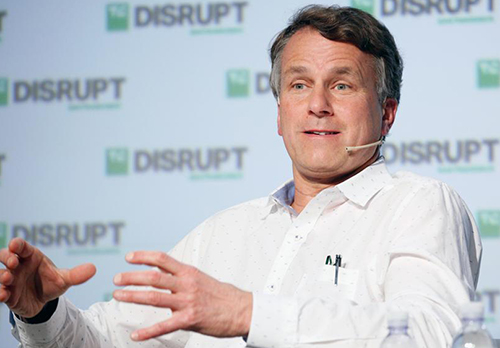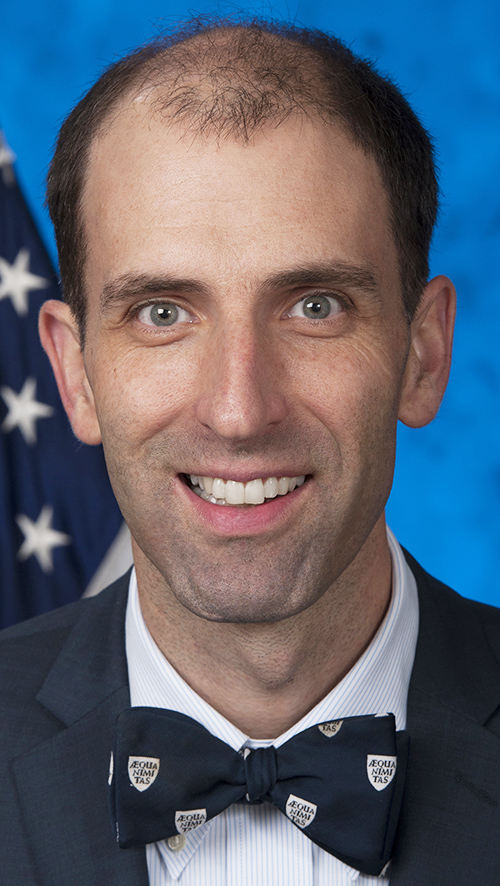‘There’s an App for That’ is Becoming the Norm in Healthcare as Smartphones Provide Access to Patient Medical Records and Clinical Laboratory Test Results
Amazon’s app-based employee healthcare service could be first step toward retailer becoming a disruptive force in healthcare; federal VA develops its own mHealth apps
More consumers are using smartphone applications (apps) to manage different aspects of their healthcare. That fact should put clinical laboratories and anatomic pathology groups on the alert, because a passive “wait and see” strategy for making relevant services and lab test information available via mobile apps could cause patients to choose other labs that do offer such services.
Patient use of apps to manage healthcare is an important trend. In January, Dark Daily covered online retail giant Amazon’s move to position itself as a leader in smartphone app-based healthcare with its launch of Amazon Care, a virtual medical clinic and homecare services program. At that time, the program was being piloted for Seattle-based employees and their families only. Since then, it has been expanded to include eligible Amazon employees throughout Washington State.
Mobile health (mHealth) apps are giving healthcare providers rapid access to patient information. And healthcare consumers are increasingly turning to their mobile devices for 24/7 access to medical records, clinical laboratory test results, management of chronic conditions, and quick appointment scheduling and prescription refills.
Thus, hearing ‘There’s an app for that’ has become part of patients’ expectations for access to quality, affordable healthcare.
For clinical laboratory managers, this steady shift toward mHealth-based care means accommodating patients who want to use mobile apps to access lab test results and on-demand lab data to monitor their health or gain advice from providers about symptoms and health issues.
Amazon, VA, and EMS Develop Their Own mHealth Apps
The Amazon Care app can be freely downloaded from Apple’s App Store and Google Play. With it, eligible employees and family members can:
- Communicate with an advice nurse;
- Launch an in-app video visit with a doctor or nurse practitioner for advice, diagnoses, treatment, or referrals;
- Request a mobile care nurse for in-home or in-office visits;
- Receive prescriptions through courier delivery.
The combination telehealth, in-person care program, mobile medical service includes dispatching nurses to homes or workplaces who can provide “physical assessments, vaccines or common [clinical laboratory] tests.”

However, the US federal Department of Veterans Affairs (VA) also is becoming a major player in the mHealth space with the development of its own mobile app—VA Launchpad—which serves as a portal to a range of medical services.
Veterans can access five categories of apps that allow them to manage their health, communicate with their healthcare team, share health information, and use mental health and personal improvement tools.

mHealthIntelligence reported that mobile health tools also are enabling first responders to improve emergency patient care. At King’s Daughters Medical Center in Brookhaven, Miss., emergency medical technicians (EMTs) are using a group of mHealth apps from DrFirst called Backline to gain real-time access to patients’ HIPAA-compliant medication histories, share clinical data, and gain critical information about patients prior to arriving on the scene.
Using Backline, EMTs can scan the barcode on a patient’s driver’s license to access six months’ worth of medication history.
“In the past, we could only get information from [patients] who are awake or are willing to give us that information,” Lee Robbins, Director of Emergency Medical Services at King’s Daughters Medical Center in Brookhaven, Miss., told mHealthIntelligence. “Knowing this information gives us a much better chance at a good outcome.”
Smartphone App Detects Opioid Overdose
The opioid crisis remains one of the US’ greatest health challenges. The federal Centers for Disease Control and Prevention (CDC) reported 47,600 opioid-related deaths in 2017, and the problem has only gotten worse since then.
To curtail these tragic deaths, University of Washington (UW) researchers developed a smartphone app called Second Chance, that they believe can save lives by quickly diagnosing when an opioid overdose has occurred.
The app uses sonar to monitor an opioid user’s breathing rate and, according to a UW press release, can detect overdose-related symptoms about 90% of the time from up to three feet away. The app then contacts the user’s healthcare provider or emergency services.
The UW researchers are applying for US Food and Drug Administration (FDA) clearance. They published their findings in the journal Science Translational Medicine.
While Demand for mHealth Apps Grows, Concern over Privacy and Security also Increases
According to mobile data and analytics company App Annie, global downloads of medical apps grew to more than 400 million in 2018, up 15% from two years earlier.
“As with mobile banking, consumers are showing they trust mobile apps with their most sensitive information and are willing to leverage them to replace tasks traditionally fulfilled in-person, such as going into a bank branch or, in the case of medical apps, to a doctor’s office,” App Annie’s website states.
However, the proliferation of mHealth apps has raised privacy and safety concerns as well. While the FDA does regulate some mobile health software functions, it does not ensure an mHealth app’s accuracy or reliability.
In his article, “Dangers of Defective Mobile Health Apps and Devices,” published on the Verywell Health website, Kevin Hwang, MD, MPH, physician, researcher, and Medical Director of UT Physicians General Internal Medicine Center in the Texas Medical Center at the University of Texas Medical School at Houston, points out that “most mHealth apps have not been tested in a rigorous manner.”
Fierce Healthcarereported that federal lawmakers are worried veterans who use the VA’s 47 mHealth apps could find their sensitive healthcare information shared or sold by third-party companies. In fiscal year 2018, veterans participated in more than one million video telehealth visits, a VA press release reported.
US Rep. Susie Lee, D-Nevada, Chairperson of the House Veterans’ Affairs Subcommittee on Technology Modernization, told Fierce Healthcare, “As we assess the data landscape at the VA and the larger health IT space, we need to look at where protections exist or don’t exist and whether we need more guardrails.”
What does all this mean for clinical laboratories? Well, lab managers will want to keep an eye on the growing demand from consumers who want direct access to laboratory test data and appointment scheduling through mHealth apps. And, also be aware of HIPAA regulations concerning the sharing of that information.
—Andrea Downing Peck
Related Information:
How Amazon is Using IoT to Care for Its Employees
Amazon Launches Amazon Care, a Virtual Medical Clinic for Employees
VA Seeing Substantial Growth in Telehealth, Key Patient Engagement Tools
VA Releases Launchpad App to Streamline Healthcare Access for Veterans and Caregivers
Smartphone App Can Detect Opioid Overdoes Using Sonar
VA Exceeds More than One Million Video Telehealth Visits in FY2018
Medical Apps Transform How Patients Receive Medical Care
Dangers of Defective Mobile Health Apps and Devices
mHealth Tools Help Providers Access Data When They Most Need it
Here’s How Amazon Employees Get Health Care Through a New App—A Glimpse of the Future of Medicine
VA Launches New mHealth App to Consolidate Vets’ Access to Resources
The VA Recommends Apps for PTSD and Pain Management. It’s Led to New Veteran Privacy Concerns



